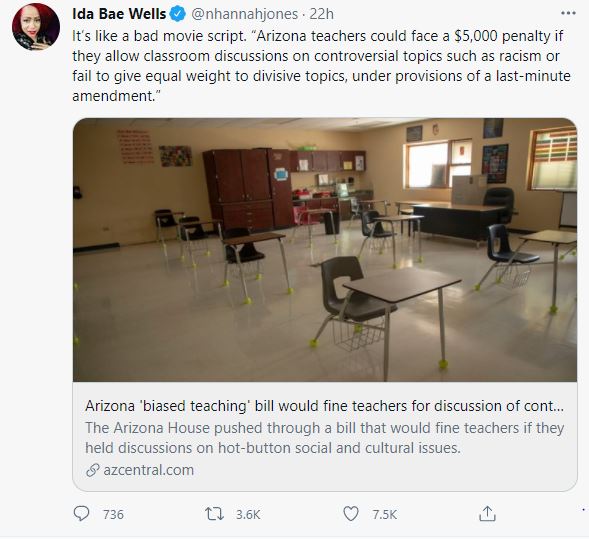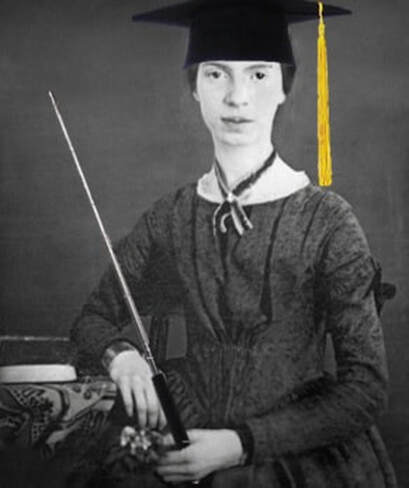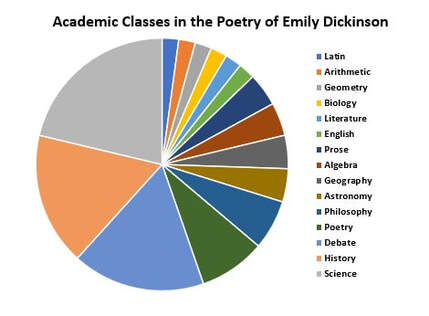Texas limits the teaching a slavery and actually has textbooks that refer to enslaved people as "immigrants" or "workers." Governor Abbott recently established the "1836 Project" to teach misinformation to students disguised as "patriotic education." Oklahoma has outlawed the mention of white privilege. The GOP has also worked diligently to silence the Pulitzer prize winning 1619 Project (the National Association of Scholars, a conservative advocacy group, has called on the Pulitzer Prize Board to rescind journalist Nikole Hannah-Jones' prize), and they are hoping to stop the spread of knowledge of the Tulsa Race Massacre (which -- in an attempt to shift blame unto the African-American community -- they call the Tulsa Race Riot).
In response to these and other efforts on the part of the GOP to re-white -- er, re-write -- our history, I have posted Emmett Lee Dickinson's now-classic poem "Consulting history's clock" below on the left. Dickinson's poem inspired third cousin Emily to pen her poem "Consulting summer's clock," below on the right.
| By Emmett Lee Dickinson: Consulting history’s clock But half the truth remains They ascertain it with a shock They will not look again. The second half of truth Is harmful to their cause The truth they do not care to know They muffle with their laws. | By Emily Dickinson: Consulting summer's clock, But half the hours remain. I ascertain it with a shock – I shall not look again. The second half of joy Is shorter than the first. The truth I do not dare to know I muffle with a jest. |




 RSS Feed
RSS Feed
